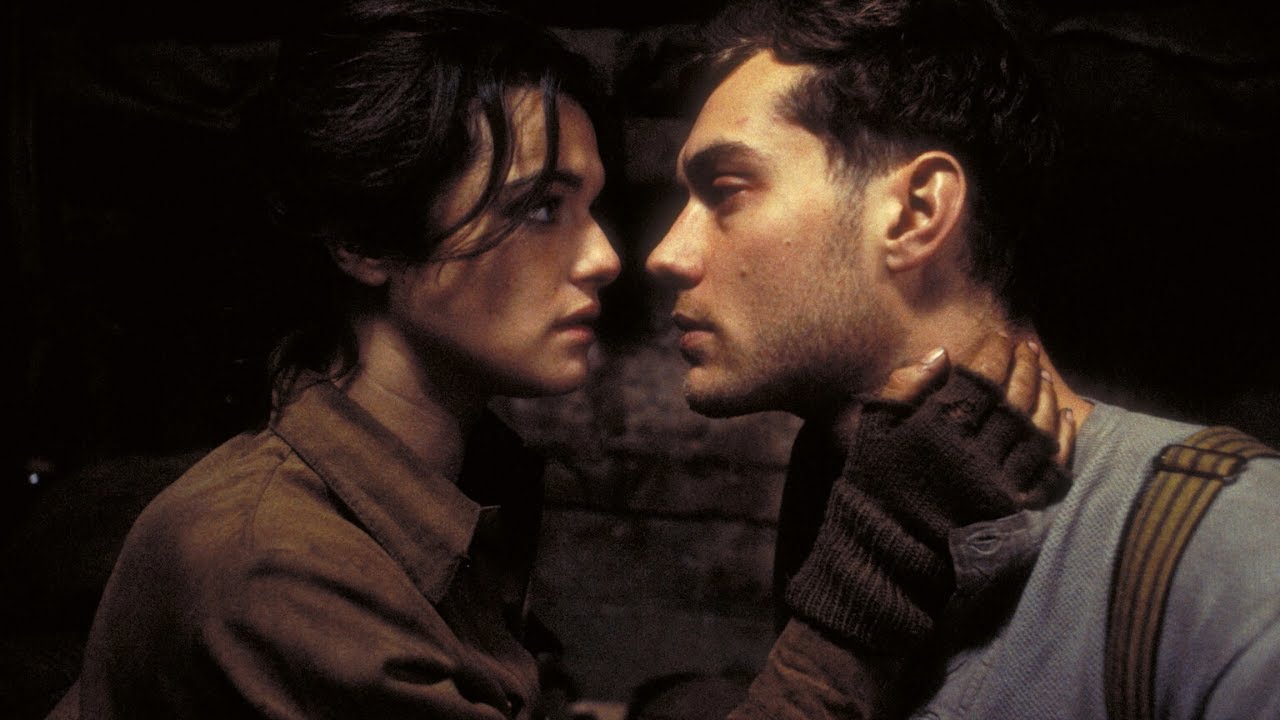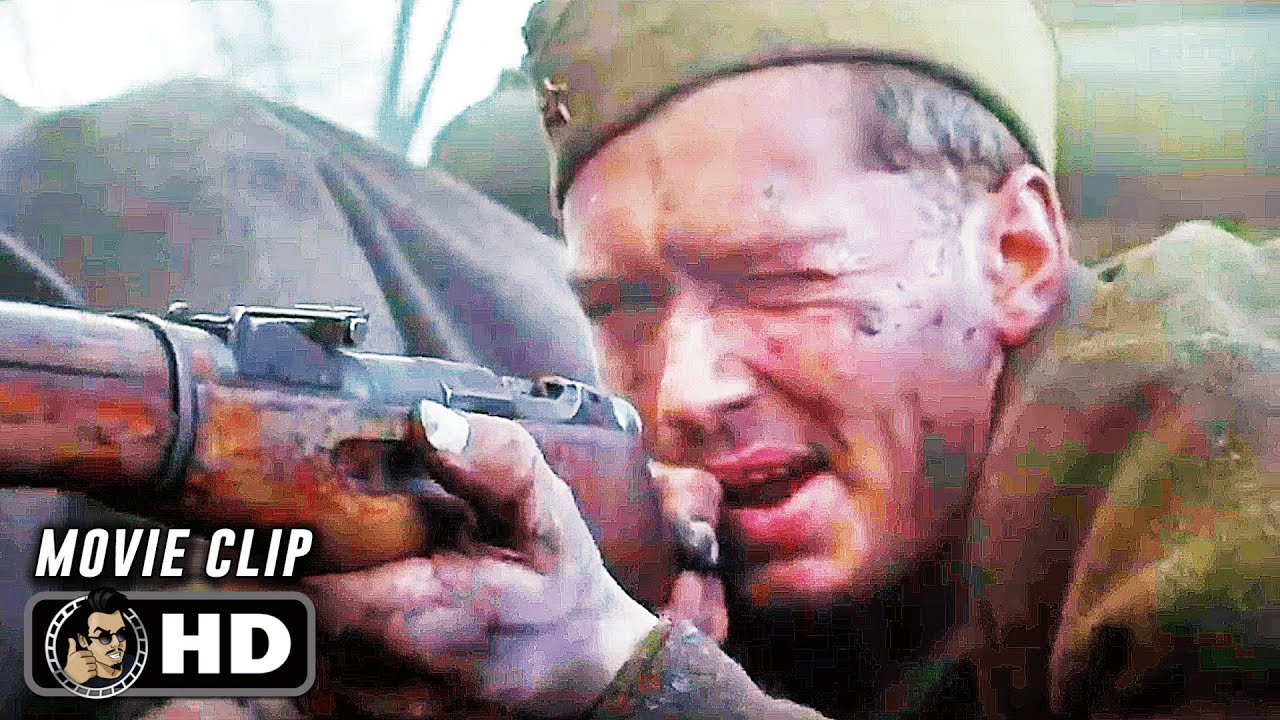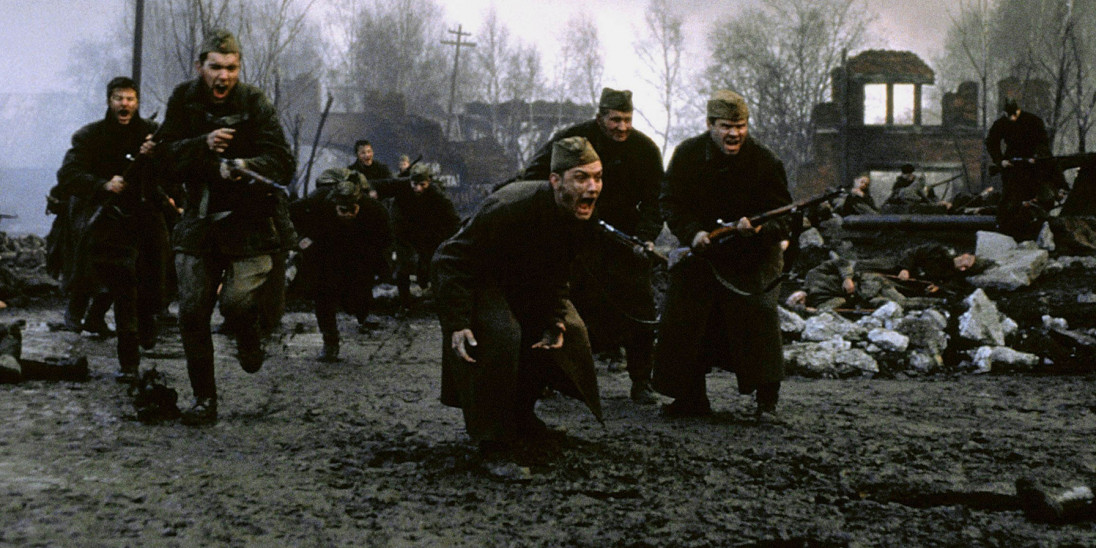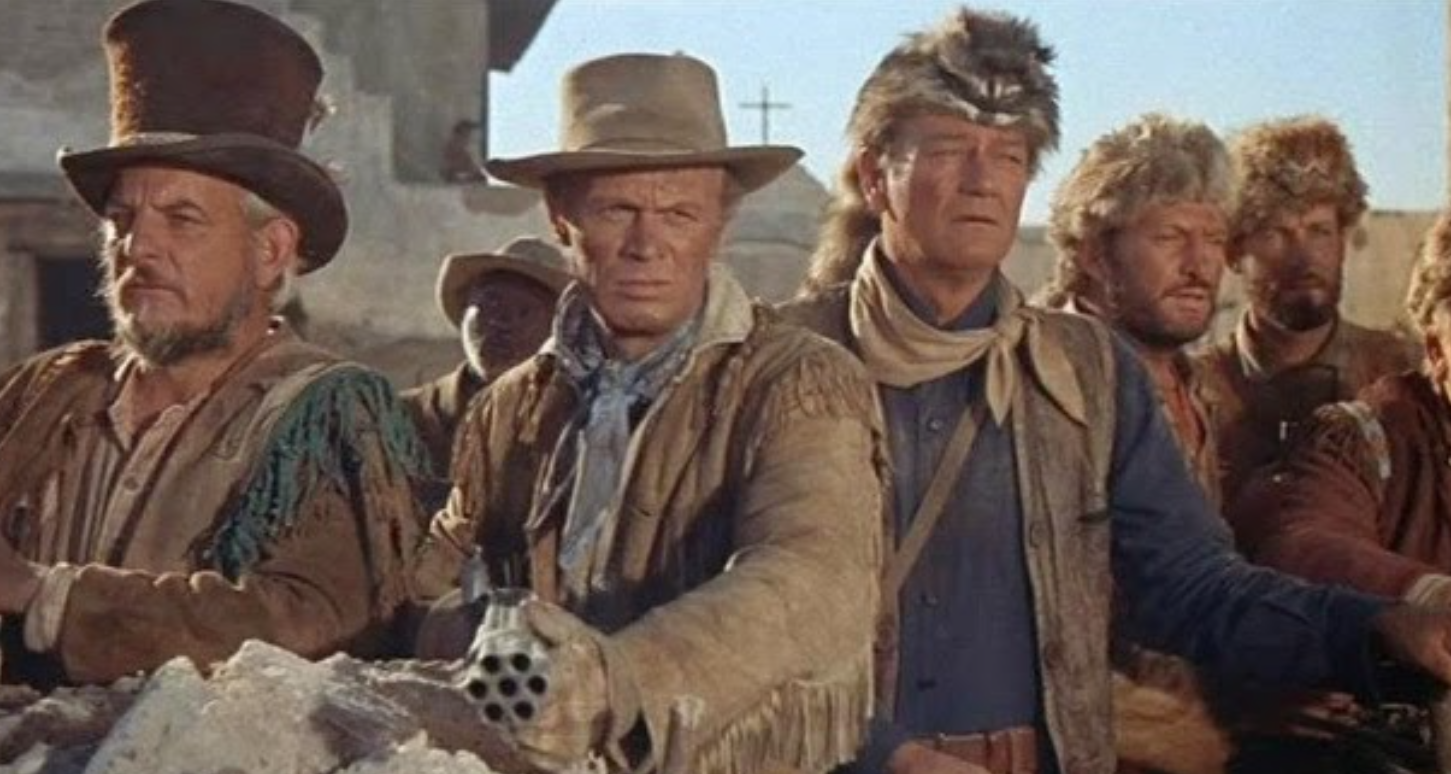🎬 Enemy at the Gates (2001): A Tense Duel of Snipers in the Ruins of Stalingrad

Enemy at the Gates (2001), directed by Jean-Jacques Annaud, is a gripping war drama set during one of the most pivotal battles of World War II—the Battle of Stalingrad. Based on real events, the film follows the legendary duel between Soviet sniper Vasily Zaitsev and his German counterpart, Major Erwin König. With its intense performances, stark depiction of warfare, and a personal story set against the backdrop of brutal conflict, Enemy at the Gates immerses viewers in the harrowing battle for Stalingrad and the psychological cat-and-mouse game between two snipers.
Plot Overview:
The film opens in 1942, as the German army lays siege to the city of Stalingrad, reducing it to ruins in a series of relentless bombings. Soviet soldiers are thrown into the battle with little preparation or support, and many die as cannon fodder in the desperate defense of the city. Among them is Vasily Zaitsev (Jude Law), a simple shepherd from the Ural Mountains with extraordinary marksmanship skills.
After a stroke of luck, Vasily’s shooting abilities catch the attention of Danilov (Joseph Fiennes), a political officer who sees in Vasily a hero the Soviet people desperately need. Danilov uses Vasily’s exploits to create propaganda, turning him into a symbol of hope and resistance. As Vasily’s reputation grows, his accomplishments draw the attention of the Germans, who send Major Erwin König (Ed Harris), a top sniper, to hunt him down and break Soviet morale.

What follows is a deadly game of cat and mouse, as Vasily and König engage in a tense sniper duel in the ruins of Stalingrad. The film also delves into the complex relationships between Vasily, Danilov, and Tania (Rachel Weisz), a fellow soldier who captures both Vasily’s and Danilov’s affections. As the battle for the city rages on, Vasily must not only face his deadly adversary but also navigate the shifting loyalties and personal conflicts among his comrades.
Character Development and Themes:
Jude Law’s portrayal of Vasily Zaitsev is one of quiet determination and reluctant heroism. Vasily is not initially a warrior, but rather a humble shepherd who is thrust into the chaos of war. His transformation into a national hero is driven by necessity rather than ambition, and Law captures the character’s inner conflict between his growing fame and his desire for a simpler life. Vasily’s skill as a sniper makes him a key figure in the Soviet defense, but the film also explores the personal toll this role takes on him, particularly as he becomes a pawn in the larger propaganda war.
Ed Harris’s Major Erwin König is the film’s antagonist, though he is portrayed with a sense of professionalism and respect that elevates him beyond a typical villain. König is not motivated by ideology or hatred; rather, he is a skilled soldier carrying out his mission with precision and honor. Harris brings a cold, calculating intensity to the role, making König a formidable opponent for Vasily. The sniper duel between Vasily and König becomes a battle of wits as much as skill, with both men trying to outthink and outmaneuver each other in the deadly ruins of Stalingrad.

Joseph Fiennes’s Danilov represents the ideological side of the Soviet war effort. As a political officer, Danilov sees Vasily as a tool for Soviet propaganda, using his exploits to inspire the troops and boost morale. However, Danilov’s personal feelings for Tania complicate his relationship with Vasily, leading to tension between the two men. Fiennes portrays Danilov as a man torn between his ideals and his personal desires, ultimately questioning the morality of using Vasily for political purposes.
Rachel Weisz’s Tania is a complex character caught between the two men. A strong and capable fighter, Tania’s character adds emotional depth to the story, as her relationship with Vasily grows amidst the horrors of war. Weisz brings warmth and strength to Tania, making her a pivotal figure in the emotional arc of the film.
One of the central themes of Enemy at the Gates is the dehumanizing nature of war. The sniper duel between Vasily and König is symbolic of the larger conflict between the Soviets and the Germans, with both men reduced to tools of their respective armies. The film also explores the idea of heroism and propaganda, as Vasily is transformed from a simple soldier into a national symbol by the Soviet government, whether he wants it or not. The question of what it means to be a hero in the context of war is a recurring theme, with Vasily’s reluctance to embrace his status adding complexity to his character.
Action and Visual Style:
Enemy at the Gates excels in its depiction of the grim, claustrophobic nature of urban warfare. The ruins of Stalingrad, with their bombed-out buildings, rubble-filled streets, and constant sense of danger, create a bleak and oppressive atmosphere. The film’s cinematography, by Robert Fraisse, captures the devastation of the city, using muted colors and harsh lighting to reflect the brutality of the conflict.
The sniper sequences are particularly tense, with Annaud expertly building suspense as Vasily and König stalk each other through the ruined city. These scenes are often quiet and methodical, with the tension coming from the anticipation of when and where the next shot will come. The film’s action is not about large-scale battles, but rather the intimate, deadly encounters between individuals, where one wrong move means death.

The film’s score, composed by James Horner, complements the visuals with a mix of somber, haunting melodies and intense, pulse-pounding crescendos. The music enhances the emotional weight of the story, particularly during the more personal moments between the characters.
Criticism:
While Enemy at the Gates is widely praised for its intense sniper sequences and performances, it has also faced criticism for its historical accuracy and its romantic subplot. The film takes creative liberties with the real-life events it portrays, particularly in its depiction of the personal rivalry between Zaitsev and König, which is largely fictionalized. Some critics argue that the film sacrifices historical authenticity for dramatic effect, though this is a common practice in war films.
The romantic triangle between Vasily, Tania, and Danilov has been criticized for feeling somewhat forced and detracting from the more compelling aspects of the sniper duel. While the love story adds an emotional dimension to the characters, some viewers may find it unnecessary or underdeveloped in the context of the larger war narrative.
Additionally, the film’s pacing can feel slow at times, particularly during the quieter moments between the action sequences. While these moments are important for character development, they may test the patience of viewers expecting a more action-driven war film.
Final Thoughts:
Enemy at the Gates is a tense, atmospheric war drama that shines in its depiction of the deadly sniper duel between Vasily Zaitsev and Major Erwin König. Jude Law and Ed Harris deliver standout performances, and the film’s visual style effectively captures the bleakness and horror of urban warfare. While the film’s historical liberties and romantic subplot may not appeal to all viewers, its exploration of heroism, propaganda, and the psychological toll of war makes it a compelling and thought-provoking film.

For fans of war dramas and character-driven thrillers, Enemy at the Gates offers a gripping look at one of the most iconic battles of World War II, blending intense action with emotional depth.
Movie Information:
- Title: Enemy at the Gates
- Director: Jean-Jacques Annaud
- Starring: Jude Law, Ed Harris, Rachel Weisz, Joseph Fiennes
- Genre: War, Drama, Thriller
- Release Date: March 16, 2001
- Running Time: 131 minutes
- Rating: R
- Plot Summary: During the Battle of Stalingrad, Soviet sniper Vasily Zaitsev becomes a hero for his extraordinary marksmanship. His reputation draws the attention of the Germans, who send their top sniper, Major Erwin König, to eliminate him. As the two snipers engage in a deadly duel, Vasily must navigate the personal and political challenges of being a symbol of Soviet resistance.
SUGGESTED VIDEO FOR YOU:
[Movie Review] The Terrifying Birth of an Alien-Human Hybrid: A Sci-Fi Horror Unleashed!
[Movie Review] Survival War In The 333-Story Vertical Prison || The Platform 2











